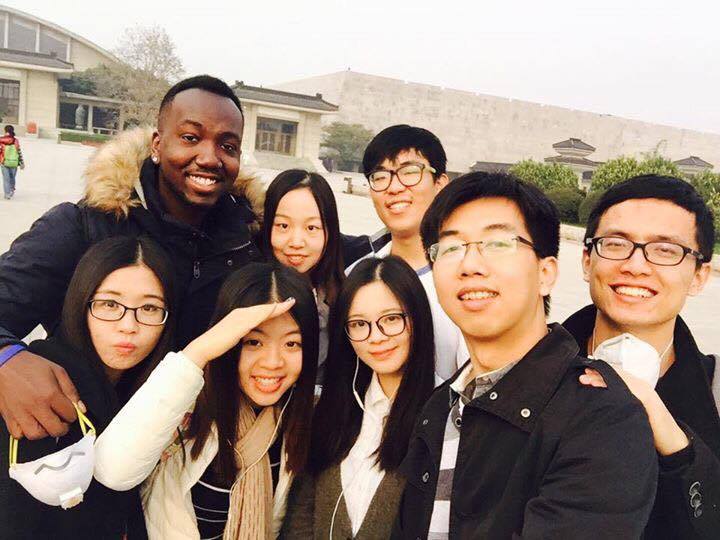Language can take you to places you could never imagine–which is exactly what happened to Chris Murphy. Chris, an MSU alumni, is now attending Peking University in Beijing pursuing a Master’s degree in Political Science. Fluent in French, Spanish, Mandarin, English, and conversationally fluent in Portuguese, he really embraced his passion for connecting with people through language, which has taken him all over the world. As he is now pursuing his passion for Chinese, we talked with him about what gave him that spark.
How did learning a second/third language allow you to pursue your passion?
I grew up in the small city of Monroe, MI, where the population does not exceed 100,000, therefore anything foreign was absolutely fascinating to me. I remember making my first Chinese friend in the 11th grade. She was quiet, introverted, and was unable to mingle with the rest of us because of the language barrier. I was determined to help her. I wanted to become the bridge that would open avenues for her to express herself in English. I wanted to become the arch through which she could crossover to grasping an understanding of our culture.

My friendship with Aileen, my first Chinese friend, taught me the importance of promoting cultural understanding through bridge building. In my sophomore year of high school, I made the lifetime commitment to devote my life to building bridges culturally and linguistically. After studying Mandarin for 1,300 hours (classes at Michigan State University combined with two study abroad experiences to Harbin and Hangzhou funded by nationally competitive scholarships), I was able to graduate with a level of “advanced conversational fluency” in 2016. Today, eight years after making the life commitment of building bridges, I am learning to build bridges between countries in my first year of graduate school at Peking University, as a Political Science major.
Have you connected with new people because of your second language?
Learning Mandarin has allowed me to connect with people in a way that I never knew possible. At Peking University, I am taking courses with Mandarin as the language of instruction. It’s difficult at times because I am transitioning from simple language like ordering coffee at Starbucks to more complex topics, like talking about how area studies encourage ethnocentrism in African countries.

Even though it’s a struggle at times, my Chinese classmates and professors are EXTREMELY supportive and having that type of community makes it so much easier to exist here. China is one of the only countries where I have felt genuine love from my classmates. I recently gave a 30-minute presentation, in Chinese, on the US’ decision to enact the NSC 68 during the Cold War during which I was stressed about the complex vocabulary. One of my friends evidently sensed my frustration over the weeks. He invited me out for coffee, sat down with me, and helped me translate the technical vocabulary. The result of the project was a success because of supportive friends and professors.
Studying in China has encouraged me to be a risk-taker. Forcing myself to step outside of my comfort zone to experience something new allowed me to connect with those around me not only in the Yenching Academy, but also in different departments. For those who are up for the challenge, I encourage all adventurous exchange students to audit or take courses taught in their host country’s language. This type of environment not only introduces vocabulary that one rarely learns in language courses, but makes members feel included in a tight-knit community.

